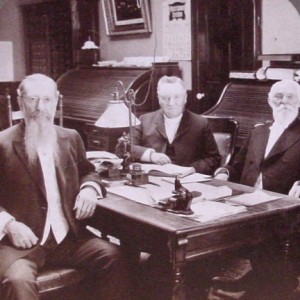Celebrity Infidelity Scandals Linked to Pornography?
Here’s my latest article from iibloom.com…
 There has been a great deal of drama in the tabloid news lately about celebrities engaging in infidelity. Almost every show, whether it be on cable, radio or online, has at least mentioned these stories, namely the Tiger Woods saga and the Jesse James saga. Society is caught up in the drama, wanting to know each and every piece to the puzzle. Society is enamored by the infidelity of these men, men who have an incredible scope of influence.
There has been a great deal of drama in the tabloid news lately about celebrities engaging in infidelity. Almost every show, whether it be on cable, radio or online, has at least mentioned these stories, namely the Tiger Woods saga and the Jesse James saga. Society is caught up in the drama, wanting to know each and every piece to the puzzle. Society is enamored by the infidelity of these men, men who have an incredible scope of influence.
The interesting aspect to these stories is that these men seemed to “have it all,” yet they show us that they are incredibly empty inside. These men had power, influence, riches, everything and anything money could buy, respected corporate endorsements, celebrity status, beautiful children and incredible wives; what was missing that they had to act out in sexual infidelity? I will venture a possible scenario: could it be that these men have/had an addiction to pornography? This assertion may seem off-base and farfetched at first glance, so please allow me to explain.
When a man has an addiction to pornography, his body becomes programmed to search out the next sexual-fix, similar to someone who is addicted to a chemical drug. As this man continues to ascertain more and more fixes, he becomes desensitized to “the little things” and desires more and more, lowering his guard and accepting acts, thoughts and/or fantasies that he may once have been opposed to. The only way to fulfill these desires is to act on them, which may lead to promiscuity, secrecy, infidelity and increased sexual behavior. At the heart of an addiction to pornography is selfishness, a selfishness that disregards responsibility, relationships and ultimately, God. Could it be, then, that Tiger and Jesse were involved in the use of pornography leading up to and during their marriages, which includes their sexual exploits?
who is addicted to a chemical drug. As this man continues to ascertain more and more fixes, he becomes desensitized to “the little things” and desires more and more, lowering his guard and accepting acts, thoughts and/or fantasies that he may once have been opposed to. The only way to fulfill these desires is to act on them, which may lead to promiscuity, secrecy, infidelity and increased sexual behavior. At the heart of an addiction to pornography is selfishness, a selfishness that disregards responsibility, relationships and ultimately, God. Could it be, then, that Tiger and Jesse were involved in the use of pornography leading up to and during their marriages, which includes their sexual exploits?
It’s not the same for every man…
Simply being a celebrity does not mean that someone is a good role model. So often in society, the media portrays men and women of celebrity stature to be role models. The portrayal seemingly stems from their time in the limelight. If people are interested in you, then obviously you are qualified to be a role model. (Wrong.) The more someone is discussed on TMZ, Extra or YouTube, the more their proverbial stock rises. A celebrity’s stock may rise because they just won an award for a great role in a movie, or because they were just awarded MVP of their sport, or possibly because of a charity event they sponsored that raised money for a worthy cause. However, a celebrity’s stock may also rise if they’ve been arrested, are getting a divorce or have just entered “rehab.”
The scope of influence that a celebrity has, especially celebrities like Tiger Woods and Jesse James, is astronomical. Young children, and even grown men, alter their lifestyles to be more like these kinds of guys, all because their lifestyles look glamorous. When the glamour fades away, and the truth is exposed, we see clearly the emptiness and hurt that remains.
ASK AN EXPERT – BACK TO THE CATHOLIC FAITH
My latest Ask an Expert response on iibloom.com:
QUESTION: What can I do for my 20 yr old son to come back to the Catholic faith?
ANSWER: This question is on the mind of parents everywhere. There isn’t a cookie-cutter answer because your son (and everyone else’s adult child) is unique. Please realize that the answer to the question for you and your son could take years to figure out. And, you have to be able to come to grips with the fact that your son may never return to the faith. It’s a hard pill to swallow, but a reality. On a personal level, I relate closely to this topic because I put my parents, family and friends through the very same thing about 10 years ago when I was 19 years old. I’ll get to the reason why I came back to the faith, but first, let me give a few generic answers for you to consider and possibly act on.
First off, you may not be the right person to talk to your adult child about their faith life – or lack thereof. On the other hand, you might be just the person. I recommend determining whether you think you are this person or not. Be objective, keeping in mind that, unfortunately, your adult child may not want to listen to you. Objectivity, not subjectivity, is key to making this distinction. As their parent, you want them to “get it,” but it’s not that simple.
Secondly, there are lots of reasons why people leave the faith. However, I have never come across a person who knew that the Catholic Church was the fullness of the truth and willingly left. This isn’t to say that there’s someone out there like this, but it’s unlikely. The important thing to keep in mind here is that knowing and loving are two separate things. It is simply not enough for someone to have head-knowledge of the person of Jesus and never come into a loving relationship with Him. The loving relationship with Christ comes from a conversion, or turning away from our sinful ways, and turning towards God. Conversion may be the farthest thing in your son’s mind. You can’t make the conversion take place, but you can be like St. Augustine’s mother, St. Monica, who was relentless in her prayer, suffering, penance and example for her son. What she was successful at was knowing her role in the necessary conversion of her son, who was far worse than your son, and who became a doctor of the Church.
Next, if his catechesis (knowledge of, understanding of and reasoning for the faith) is poor, there won’t be a compelling-enough reason to go to Mass. If his catechesis is poor, it means that Mass isn’t about receiving the Eucharist, the greatest gift God could have ever given to us, His people, but that Mass is an obligation that takes time and energy. Mass in the latter case becomes tedious and boring, something merely to check off a list and not something that is viewed as a privilege and an honor. This is the way that many “fallen away” Catholics view Mass. They were never taught the WHY, only the WHAT. The WHAT never suffices in and of itself.
There is most likely a disconnect somewhere for him. It is quite possible that you did a lot of great things raising your son and for some personal reason, he is choosing to abandon his faith – the faith you want so badly for him to possess. It is also quite possible that he doesn’t have a foundational understanding of the WHY of our faith and therefore doesn’t believe that the faith is practical, and that emotionally it’s easier to live a godless life than to deal with all the outdated rules, for example. If we, as parents, don’t know, love and live our faith, why should we ever expect our children to? He may have gone to Catholic school all his life, or been in every CCD class your parish offered. That’s not enough because true conversion hasn’t taken place yet.
We all need role models to emulate. There’s a man in your son’s life that is a faithful Catholic man, that “has it all,” that loves life, that cherishes his wife, that is a man’s man and that your son trusts. Depending on this man, either suggest to your son to go and speak with him, or invite the man to engage your son in conversation. I am willing to bet that in order for your son to go through the necessary steps for true conversion, that a real relationship is going to be an absolute must. This trustworthy man could be just the thing your son needs. It will take time.
The reason I came back to the faith had nothing to do with my family, it had everything to do with joy. I was on my college campus, an anti-Catholic, Evangelical, sola-scriptura Christian. I fought with people about the faith, I pushed the faith aside and I hated Catholicism. Soon, my life turned to despair, hopelessness and was riddled with doubt. I looked around at all the people who I considered to be my friends and they all had something I wanted. They had joy, in the deepest sense of the word. Their joy caused me to rethink everything I had turned away from. I went on a long journey and through their example, returned to the vibrant faith that I now know and love.
Keep the faith and pray that your son will have a conversion and come to understand and love the faith which we hold so dear. Blessings, Dave.
Encouraging Men to Get Involved
Here’s my latest article on iibloom.com, posted yesterday.
For some people, it’s a struggle to figure out why men aren’t involved at church and church-related events. When we take a look at a typical parish in the United States, we see a Church that is struggling to entice, encourage and strengthen men as leaders. Why is this? Is it the content, is it the timing, is it the other people in attendance? Is it something internal? Do they feel emasculated by it? Is it a lack of catechesis? Is there a power struggle? Or maybe even something else?
(Please note, this article is a generalization; please keep this in mind. Many men are fully engaged in the life of the Church and many parishes have a thriving men’s population. The point of this article is to find ways to help encourage men who aren’t involved to become involved.)
Men won’t get involved in “stuff” if they don’t see a value in it. Also, they aren’t likely to attend a new event, group or club unless they know someone else who is attending, and know them well. Another reason men won’t get involved is if they see the stuff as weak, lame or feminine. Unfortunately, many men see Mass, Church events, groups and retreats through this lens. On my website, I have mentioned that the Church is “by women, for women,” and this is a big reason why men aren’t involved. I say this because the vast majority of parishes in the US have a very lopsided attendance and volunteer demographic. The reason for this is because men fail to step up and into leadership and volunteer roles.
know someone else who is attending, and know them well. Another reason men won’t get involved is if they see the stuff as weak, lame or feminine. Unfortunately, many men see Mass, Church events, groups and retreats through this lens. On my website, I have mentioned that the Church is “by women, for women,” and this is a big reason why men aren’t involved. I say this because the vast majority of parishes in the US have a very lopsided attendance and volunteer demographic. The reason for this is because men fail to step up and into leadership and volunteer roles.
Men shouldn’t be forced into praying like women pray, it doesn’t work for us. Men need to pray the way men were created to pray. Men shouldn’t be forced into activities that are similar to women’s activities, it does’t work for us. Men should participate in activities that they were created for. There’s a difference, and that difference is important.
The difference is, as the late Pope John Paul II often talked about, is that men and women were created equal in dignity, but different in role. In order for men to fulfill their role, their lives must be oriented correctly towards what they were created for. A great place to see what it is that men were created for is to read through the creation narrative in The Book of Genesis.
So how do you encourage men to participate? It’s tough to know, exactly. I think that a great way is to get to the heart of a man…that which God put deep inside each man. It’s different from anything else in the world, and hard to explain. See, men want to be rugged and tough. They want to shoot stuff, and fix stuff, and build stuff. They want to protect and defend, they want to love and be loved. They want to feel a purpose and be accomplished. Unfortunately, so many men don’t know how to do any of that stuff. If we want men to participate, we have to encourage them, build them up and GIVE THEM A PERSONAL INVITATION. Personal invitations, from men they trust and respect, might just be the thing to get a man involved in the Life of the Church. The personal invitation should be in person, not over phone, texting or email. And once the invitation is extended, the event better not stink! Or be lame! And, it better not be associated with ‘sissiness’! If it does, he’ll never come back.
If we want men to participate, we have to encourage them, build them up and GIVE THEM A PERSONAL INVITATION. Personal invitations, from men they trust and respect, might just be the thing to get a man involved in the Life of the Church. The personal invitation should be in person, not over phone, texting or email. And once the invitation is extended, the event better not stink! Or be lame! And, it better not be associated with ‘sissiness’! If it does, he’ll never come back.
I encourage all the faithful, if they know a man who needs to be involved, to be like St Monica. St Monica, the mother of St Augustine, prayed unceasingly for her son. Augustine was a wandering-soul. He lived a life of incredible sin and his mother still prayed. He became one of the greatest saints and writers of the Church. That man who you know might just be the next St Augustine.
Click HERE for the article on iibloom’s site.
Ask An Expert
This was a question I responded to on www.iibloom.com today:

What is the best way to get back in the groove of going to Church?
Asked on September 23, 2009
Throughout High School I attended Church on a regular basis with my parents. In college, I would go out on the weekends and would have a tough time regularly attending Church on Sunday….not an excuse…just reality. Now that I am out of college the same routine persists. I’m a baptized Catholic and consider myself Catholic and I have a deep hunger to grow deeper in the faith and prioritize my life. Aside from the lame excuse of my nightlife I have found it very hard to find people to attend Mass with me and I don’t feel comfortable going alone. Any advice?
Answer
Great question! The motivation to regularly attend Mass, after not attending for a while, MUST come from within you. You state, “I have a deep hunger to grow deeper in faith and prioritize my life. ” This is wonderful! No one else can make these decisions for you, so you must come to an understanding of where your motivation “lives,” in order to feed your deep hunger. If your motivation isn’t where you want it, make changes (small or big) to get to where you want to be. I heard it said one time, “Our lives change when our habits change.” These changes don’t come easy and they don’t simply happen because you want them to. It takes action and determination to make these incredibly important changes in your life. You can do it!
I believe that part (a BIG part) of the motivation to attend Mass comes from our understanding of what is happening at Mass. If we understand what Christ did on the cross for us, we’ll better understand what He instituted at the Last Supper and what happens at each and every Mass. We are there to celebrate the Heavenly Banquet, here on earth! Who knew Mass was a big ‘ol party?! (For more on this, I would research “Eucharistic Celebration” in the Catechism of the Catholic Church or speak with your local priest. If you don’t have a Catechism, I highly encourage you to get one and learn how to use it. It will be a wonderful tool for you!)
Blessings,
Dave
Answered on September 23, 2009 by Dave DiNuzzo


